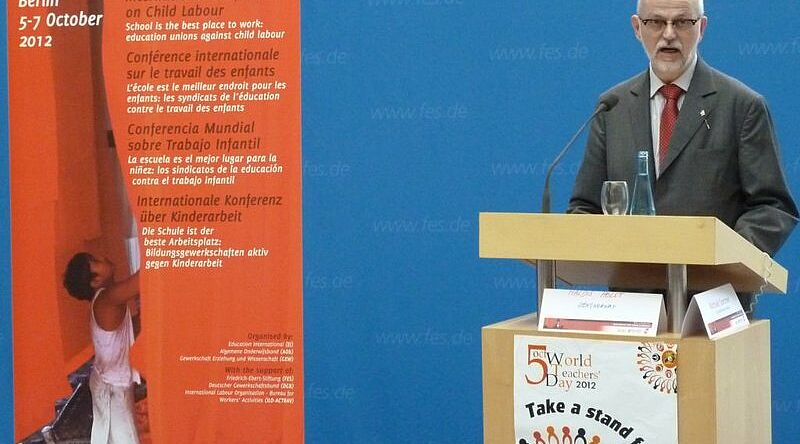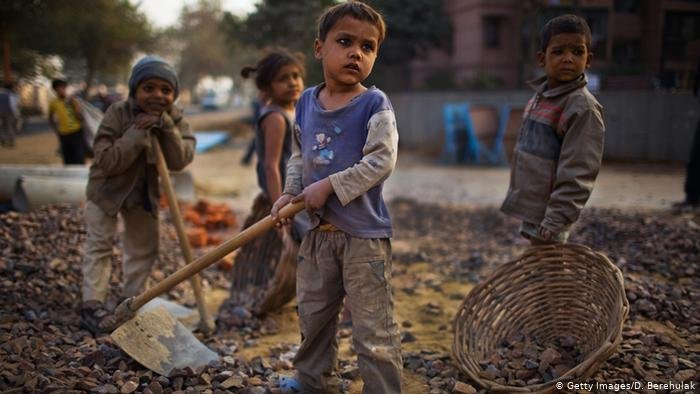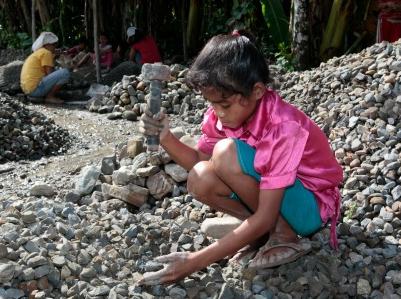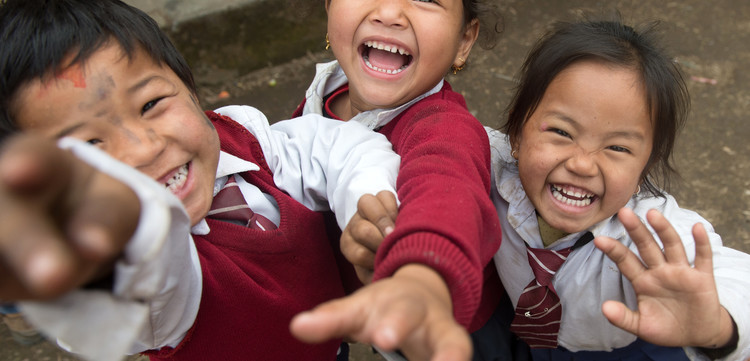Many of the goods we consume every day are made by minors. However, teachers all over the world play an important role in the fight against child labor. This was shown by an international trade union conference in Berlin.





Share and forward
October 9, 2012 – Martina Hahn
Photos: Manfred Brinkmann
Over a million children and adolescents work on the cocoa plantations in Ghana and the Ivory Coast. Many of these children were sold to human traffickers by their needy parents. Or kidnapped by smugglers who now send them to the plantations as cheap labor. These children never attended school.
But cocoa is only a product that is offered in German trade and that is always associated with child labor and exploitation. Children and teenagers are also involved in the manufacturing chain of many other consumer goods and groceries, criticized Ulrich Thönen, chairman of the education and science union, at the international conference “School is the best job: educational unions against child labor” in Berlin. From 4 to 7 October 2012, GEW, the Dutch education union AOb and the World Association of Education Unions Education International (EI) had around one hundred teachers of all Welt – from Germany, Europe and the USA as well as numerous colleagues from Asia, Africa and Latin America.
"Child labor is the worst of the bad," said DGB chairman Michael Sommer at the conference. "And a crime against children. This hurts everything that can only be hurt: It starts with the dignity of the little ones and does not end with destroying their future. ”It is particularly bad when“ we are not only talking about children in production, but about children who have to prostitute themselves or are used as soldiers. "
Close
Exploitative child labor in the manufacture of products that we consume on a daily basis and that, like the DGB boss summer says, "Sometimes you can’t even imagine without children", but it doesn’t only exist in distant countries of the so-called Third World or in emerging countries. They are also nearby. For example in Turkey, an EU candidate country. This is where 90 percent of the hazelnuts consumed worldwide come from. Germany is one of the main customer countries. Up to 300,000 Kurdish migrant workers pick the nuts for the large confectionery companies. For a hard eleven-hour day on the steep and hot slopes, they get the equivalent of twelve euros. Children also work on the hazelnut plantations – every fifth Kurdish child misses up to four months of lessons a year, according to the Turkish teachers’ union Egitim Sen. The consequences are devastating: many drop out of school or cannot read or write properly after primary school. This ultimately cemented poverty.
What can teachers do about widespread child labor? The most important thing is to sensitize adults – i.e. parents, politicians, but above all also teachers – to the problem in the countries affected by child labor and sometimes even to educate them about the topic of children’s rights for the first time. This is difficult, especially since in many societies child labor is considered normal and part of the culture. A second step is fair wages for adults in the producing countries. Because, according to R. Venkat Reddy of the M. Venkatarangaiya Foundation, a project partner of the GEW Foundation "Fair Childhood" in India: "Believe me, every mother, even the poorest, wants their child to go to school and one day can escape suffering and exploitation. ”But“ many families in poor countries still need the extra income of children to make ends meet, ”says DGB boss Sommer.
"We cannot fight child labor in isolation," said GEW chairman Thönen. Rules against child labor should finally be binding for governments and manufacturers. Consumers in the rich north are also obliged to eliminate child labor. By making more conscious and fair purchases: "Child labor is catching up with us in Germany through global trade – and through all the products we consume on a daily basis," says Thönen.
Maouloud Ben Kattra, Mali:
"Islamic extremists occupy two thirds of my country. Thousands of children are on the run. Where they are not on the run, they work in gold mines, on cotton fields, work as shepherds or in tourism. You work there because many of our teachers are unfamiliar with the ILO conventions. We must therefore first make educators aware of the topic."
Abdoulaye Quedraogo, Burkina Faso:
"The problem in my country is that often children who do not come from the village are not allowed to attend school. That is bad. Because in Africa there are many migrants and migrant workers as well as AIDS orphans who come to their relatives in the neighboring village but are not integrated."
Lourdes Edith Delouis Joseph, Haiti:
"In Haiti, many children work as domestic staff in strange families. Many rural parents entrusted their children to third parties in the city in the hope that they would be better off there, that they would have something to eat, and that they could go to school in the city. But most of them are missing from school."
José Antonio Zepeda Lopez, Nicaragua:
"In Nicaragua, children work on coffee plantations, in quarries, in gold mines. The government has now banned child labor in some sectors. But it still exists in the informal sector. The biggest barrier in the fight against child labor is the parent."
RELATED ITEMS
-

India’s controversial child labor law, all multimedia content of the German wave, dw
A new law in India prohibits all forms of employment for children under the age of 14. However, an exception applies to family businesses….
-

Sad date: world day against child labor
by Ann-Marlen Hoolt Listen to article According to the ILO, the highest number of child workers is found in Africa with 72.1 million children, followed by…
-

by Aktion Deutschland Hilft Child labor affects more than 152 million girls and boys between the ages of five and 17 worldwide. Almost half of…
-
Child labor: child labor in Europe – human rights – history – planet knowledge
New section on child labor in Europe By Ulla Rehbein / Tobias Aufmkolk Oliver Twist and the pit children in English mines: Many people think of that…
